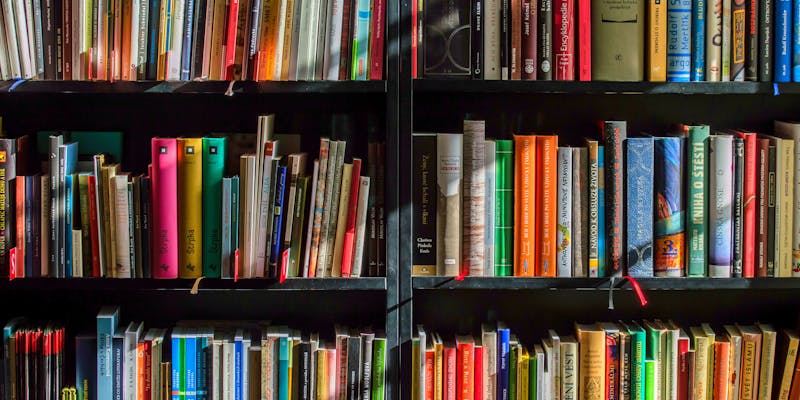Navigating the World of Economics: A Guide to the Best Books for Insightful Reading
Apr 19, 2024 By Kelly Walker
Are you ready to dive into the intricate world of economics? Whether you're a student, a professional, or simply curious about how the world works, there's no better way to gain insight than through reading. But with countless books on economics lining the shelves, where do you start? Fear not, as we've compiled a list of the best economics books to help you navigate this fascinating field.
Best Economics Books
Here is a list of some of the best economic books:
"Thinking, Fast and Slow" by Daniel Kahneman
In the fast-paced world we live in, decisions are often made quickly without much thought. Kahneman explores the two systems that drive the way we think: the fast, intuitive System 1 and the slower, more deliberate System 2. By understanding how these systems work, you'll gain valuable insights into human behavior and decision-making, which are essential aspects of economics.
This book takes you on a journey through the mind, revealing the biases and heuristics that influence our choices. It's a must-read for anyone interested in understanding why we make the decisions we do and how those decisions impact economic outcomes.
Freakonomics by Steven D. Levitt and Stephen J. Dubner
If you're looking for a fresh perspective on economics, "Freakonomics" is the book for you. Levitt and Dubner challenge conventional wisdom by examining the hidden incentives behind everyday events, from sumo wrestling to crime rates. This captivating read will open your eyes to the unexpected ways economics influences our world.

Through a series of thought-provoking anecdotes and analyses, the authors demonstrate how economic principles can be applied to seemingly unrelated phenomena, revealing surprising insights along the way. It's a fascinating exploration of the hidden forces at work in our society and a testament to the power of economic thinking.
"Capital in the Twenty-First Century" by Thomas Piketty
In this groundbreaking work, Piketty analyzes centuries of economic data to uncover the underlying patterns of wealth and inequality. By tracing the evolution of capital accumulation, he provides valuable insights into the dynamics of modern economies. This book is essential reading for anyone interested in understanding the forces shaping our economic landscape.
Piketty's meticulous research and compelling arguments challenge conventional views on wealth distribution and offer new perspectives on the drivers of economic inequality. Whether you agree with his conclusions or not, "Capital in the Twenty-First Century" is sure to spark meaningful discussions and inspire further inquiry into the complex relationship between capital, labor, and society.
"The Wealth of Nations" by Adam Smith
No list of economics books would be complete without a nod to the father of modern economics himself. Published in 1776, "The Wealth of Nations" remains a cornerstone of economic theory. Smith's exploration of the division of labor, free markets, and the invisible hand laid the foundation for classical economics and continues to influence economists to this day.
In this seminal work, Smith examines the factors that contribute to economic prosperity and argues for the importance of individual freedom and self-interest in driving economic progress. His insights into the nature of markets and the role of government remain relevant centuries later, making "The Wealth of Nations" an essential reading for anyone seeking to understand the principles of economics.
"Nudge: Improving Decisions About and Happiness" by Richard H. Thaler and Cass R. Sunstein
In "Nudge," Thaler and Sunstein explore the concept of "choice architecture" and how subtle changes in the way choices are presented can influence decision-making. Drawing on insights from behavioral economics, they demonstrate how policymakers and individuals alike can use nudges to encourage better choices without restricting freedom.
This book offers practical strategies for designing environments that promote positive behaviors, making it essential reading for anyone interested in the intersection of economics and psychology.
"Poor Economics by Abhijit V. Banerjee and Esther Duflo
Banerjee and Duflo, both Nobel laureates in economics, present a compelling argument for a new approach to addressing global poverty. Rather than relying solely on grandiose development projects, they advocate for a more nuanced understanding of the everyday challenges faced by the poor.

Through a series of rigorous studies and field experiments, they identify practical solutions that can have a meaningful impact on poverty alleviation. "Poor Economics" offers valuable insights into the complex factors that perpetuate poverty and the innovative strategies that can help break the cycle.
"The Undercover Economist" by Tim Harford
In "The Undercover Economist," Harford takes readers on a journey through the hidden world of economics that lies beneath everyday life. Through a series of engaging anecdotes and thought experiments, he reveals the economic principles at work in everything from coffee shops to supermarkets.
This book offers a fun and accessible introduction to key economic concepts, making it perfect for readers new to the subject. Whether you're interested in supply and demand or the economics of crime, "The Undercover Economist" has something for everyone.
Economics in One Lesson" by Henry Hazlitt
For those seeking a concise introduction to economic principles, "Economics in One Lesson" is an indispensable guide. Hazlitt's classic work offers a straightforward explanation of the fundamental concepts of economics, with a focus on the long-term consequences of economic policies.
Through a series of clear and compelling examples, he illustrates the importance of considering the unseen effects of actions, making a compelling case for a free-market approach to economic policy. Whether you're a student, a policymaker, or simply curious about economics, "Economics in One Lesson" provides a solid foundation for understanding the principles that govern our economy.
Conclusion
Reading is the key to unlocking new perspectives and insights, and when it comes to economics, the right books can make all the difference. Whether you're interested in behavioral economics, macroeconomics, or economic history, there's a wealth of knowledge waiting to be discovered. So don't hesitate dive into one of these best economics books and start exploring the fascinating world of economic theory and practice.








